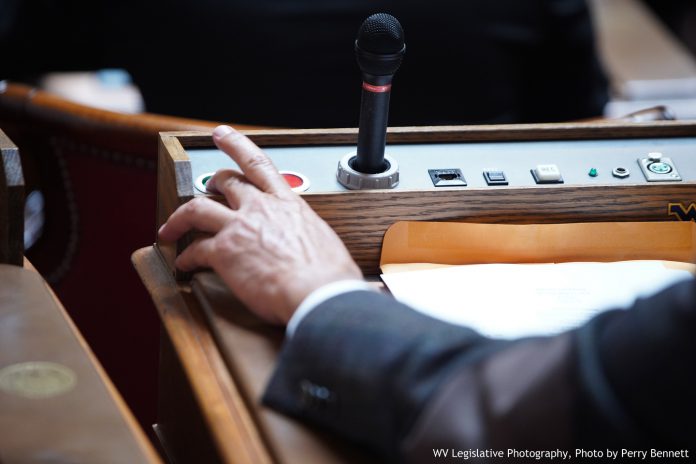With the 2003 Legislative Session underway, many people are becoming increasingly interested in current issues being tackled by lawmakers. Gaining an understanding of the legislative process is a key component in following the path of bills; however, tracking pieces of legislation can oftentimes become overwhelming for those who are unfamiliar with the intricacies of the legislative process.
By simply having an idea, all West Virginians can become involved in State Government. This is where the law-making process begins. A citizen, corporation, professional association, non-profit group or even a governmental agency can all vocalize their suggestions to a legislator.
Once proposed to a lawmaker, the bill must then be sponsored by one or more members. In the House, seven sponsors are limited to each bill or amendment while the Senate has no limit on numbers of sponsors.
After the bill is drafted, it is numerically identified and assigned to one or more committees by the Senate President or the Speaker of the House. The bill is then formally introduced in the appropriate chamber and committee references are announced.
After a committee concludes its work on the bill, it files a written report. This report can make “no recommendations”, propose that the bill “be rejected” or suggest the bill “do pass” in its original form, “with amendment(s)” offered by the committee; or, as a “committee substitute”.
Committees have the option to not review a bill or to not recommend the bill to the full membership. When this happens, the bill “dies in committee.”
Once the bill is reported out of the committee, it is then presented to the appropriate clerk, who reads the bill’s short title on the floor.
According to the State Constitution, a bill must be read three times before it can either pass or be rejected. The first reading is the information stage and notifies the membership that the bill will be considered. Once the bill advances to second reading, it is in the amendment stage and members may offer revisions and vote on proposed amendments. The bill then advances to third reading, which is the passage stage.
(Note: *There are times when the Legislature may look to suspend the Constitutional requirements that a bill be read on three separate days. This usually occurs when time is a factor. Any member can object to the suspension of rules and a vote of four-fifths is needed to dispense the rule.)
If a bill is passed by one house, it is sent to the other body for its consideration. The entire process, from committee assignments to the voting stage, is repeated.
The second chamber can make changes to the legislation. If this occurs, the bill must be sent back to its house of origin for concurrence. If the first chamber disagrees with the changes and the second body refuses to remove the revisions it made, a conference committee is appointed by the Speaker of the House or the Senate President. This committee consists of an equal number of representatives from both houses who iron out the differences.
If this committee reaches agreement, the House and Senate must adopt the conference committee report and once again vote on the passage of the bill. When a compromise cannot be achieved, another conference committee may be appointed or the measure dies in committee upon the Legislature’s adjournment.
Upon passage by both bodies, the bill is then sent to the Governor, who has five days to approve or veto a bill when the Legislature is in session. When session has ended, the Governor has 15 days to act on most bills before him; but, he must act on the Budget Bill and supplemental appropriation bills within five days. If the Governor does not act on bills within these time limits, the measures automatically become law without his signature.
The Governor has the option to veto bills when the Legislature is in session. When this occurs, a simple majority vote of the members is required to override the veto; however, when the Budget Bill or supplemental appropriation bills are vetoed, a two-thirds vote is necessary to overturn the action.
Thank you for your interest in the workings of the State Legislature. Community involvement is the foundation of State Government; so, be sure to follow bills on their path to becoming law during this year’s session.

